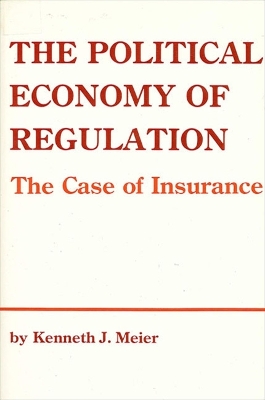SUNY series in Public Administration
1 total work
This is the first comprehensive study of the history, politics, and economics of the insurance industry in the United States. It is designed as a theoretical challenge to the conventional wisdom in political economy which says that regulation benefits the regulated. In fact, Meier shows that because the insurance industry is far too divided to impose its will on the regulatory system, the political economy of regulation is actually the product of a complex interaction of industry interests, consumer groups, insurance regulations, and political elites.
Using both historical and quantitative approaches, the author examines a variety of insurance issues including the development of insurance regulation; the impact of regulation on the availability and price of insurance; the stringency of state regulation; and the product liability insurance crisis of 1985-86. The book concludes with a series of recommendations for reforming the regulation of insurance.
Using both historical and quantitative approaches, the author examines a variety of insurance issues including the development of insurance regulation; the impact of regulation on the availability and price of insurance; the stringency of state regulation; and the product liability insurance crisis of 1985-86. The book concludes with a series of recommendations for reforming the regulation of insurance.
